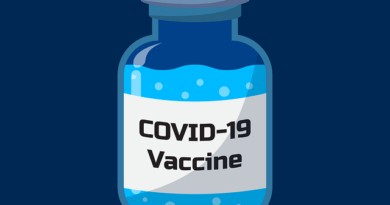Remdesivir
Context:
Social media platforms are flooded with requests for Remdesivir, considered an important drug in the treatment of COVID-19 and which is in short supply across the country. However, doctors who have been attending and monitoring thousands of critical COVID-19 patients at Gandhi Hospital have flagged the dangers of irrational use of Remdesivir and other anti-viral drugs.
About Remdesivir:
Remdesivir is an intravenous nucleotide prodrug of an adenosine analog. Remdesivir binds to the viral RNA-dependent RNA polymerase, inhibiting viral replication through premature termination of RNA transcription. It has demonstrated in vitro activity against severe acute respiratory syndrome coronavirus 2 (SARS-CoV-2).1 In a rhesus macaque model of SARS-CoV-2 infection, remdesivir treatment was initiated soon after inoculation; the remdesivir-treated animals had lower virus levels in the lungs and less lung damage than the control animals.

Remdesivir is approved by the Food and Drug Administration (FDA) for the treatment of COVID-19 in hospitalized adult and pediatric patients (aged ≥12 years and weighing ≥40 kg). It is also available through an FDA Emergency Use Authorization (EUA) for the treatment of COVID-19 in hospitalized pediatric patients weighing 3.5 kg to <40 kg or aged <12 years and weighing ≥3.5 kg. Remdesivir should be administered in a hospital or a health care setting that can provide a similar level of care to an inpatient hospital.
Remdesivir has been studied in several clinical trials for the treatment of COVID-19. The recommendations from the COVID-19 Treatment Guidelines Panel (the Panel) are based on the results of these studies. The safety and efficacy of combination therapy of remdesivir with corticosteroids have not been rigorously studied in clinical trials; however, there are theoretical reasons that the combination therapy may be beneficial in some patients with severe COVID-19. For the Panel’s recommendations on using remdesivir with or without dexamethasone in certain hospitalized patients.
Contents
Background
Remdesivir (GS-5734) was originally developed for the potential treatment of Ebola virus infection. However, in clinical trials it was not as effective as other treatments. As remdesivir has antiviral activity against many RNA viruses, it has been repurposed against SARS-CoV-2, the virus that causes coronavirus disease 2019 (COVID-19).
Remdesivir is a nucleotide analogue and is classed as a “prodrug” by medicinal chemists. Prodrugs do not inherently have antiviral activity. They must enter a cell and be activated by enzymes within that cell. Once the activation process is complete, the activated form of remdesivir tends to remain inside a cell for at least a day.
Side effects
The most common adverse effects in people treated with remdesivir were respiratory failure and blood biomarkers of organ impairment, including low albumin, low potassium, low count of red blood cells, low count of thrombocytes, and elevated bilirubin (jaundice). Other reported adverse effects include gastrointestinal distress, elevated transaminase levels in the blood (liver enzymes), infusion site reactions, and electrocardiogram abnormalities. Remdesivir may cause infusion‐related reactions, including low blood pressure, nausea, vomiting, sweating or shivering.
Other possible side effects of remdesivir include:
- Infusion‐related reactions. Infusion‐related reactions have been seen during a remdesivir infusion or around the time remdesivir was given. Signs and symptoms of infusion‐related reactions may include: low blood pressure, nausea, vomiting, sweating, and shivering.
Increases in levels of liver enzymes, seen in abnormal liver blood tests. Increases in levels of liver enzymes have been seen in people who have received remdesivir, which may be a sign of inflammation or damage to cells in the liver.
Discover more from Simplified UPSC
Subscribe to get the latest posts sent to your email.



